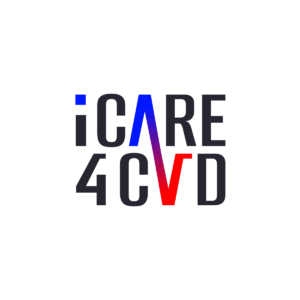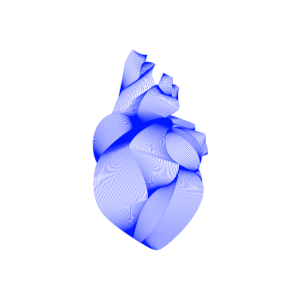Transforming Cardiovascular Care: The iCARE4CVD Initiative


At the Healthcare Data Innovation Council, we emphasize the importance of building robust architectures for data exchange in healthcare initiatives. Programs like iCARE4CVD exemplify the collaborative efforts between data users and data providers, which, in this case, are critical for enhancing the early diagnosis of cardiovascular diseases (CVD). This initiative not only stratifies patients by risk to prioritize urgent interventions but also leverages AI-based tools to forecast individual treatment outcomes. Furthermore, it integrates patient perspectives to enrich the evaluation of outcomes, ensuring a comprehensive approach to patient care.
Each year, cardiovascular diseases (CVD) affect 85 million people across Europe. Driven by lifestyle factors and an aging population, the burden of these diseases is high, culminating often in heart failure with a five-year mortality rate as high as 50%. iCARE4CVD is an innovative project leveraging health data from over 1 million individuals to improve CVD prediction and build better treatment pathways to slow and prevent disease progression. Led by Maastricht University and Novo Nordisk, and with a coalition of 34 entities, this €22 million initiative is developing AI models combining clinical contextual and treatment data with biomarkers from blood imaging and wearables. The models will be validated during a large-scale European clinical study.
The project aims to mitigate the lack of a segmented overview of CVD and all the diseases classified as CVD, the misunderstanding of how a patient journey takes place within CVD and the misunderstanding of underlying risks of one treatment over another. To address the current concerns, iCARE4CVD is pursuing four specific objectives:
- enhancing the early diagnosis of patients at risk with CVD;
- stratifying patients by risk to prioritise urgent interventions;
- utilizing AI-based tools to predict individual treatment responses;
- incorporating patient perspectives to enrich outcome measures.
These targeted objectives are crucial as they move us beyond one-size-fits-all solutions, offering hope for personalized and more effective healthcare strategies.
The accomplishment of these objectives requires a sophisticated ecosystem of data management tools, data-processing algorithms and AI models. The project employs a hybrid data platform where storage is decentralized to ensure security, yet computational processes are centralized, made possible by Decentriq’s platform, which allows for comprehensive data analysis while maintaining privacy. This setup enables seamless collaboration among researchers. The database connects data of several kinds of formats and diverse sources, allowing partners to collaborate easily and build AI models to draw novel insights. Researchers can find the datasets through a metadata search catalogue and request access directly to the data custodians. However, neither party is able to see or access the raw data of the other due to to Decentriq’s use of advanced privacy technologies including confidential computing.
The collaborative nature of iCARE4CVD underlines its potential. By integrating diverse datasets while staying compliant with EU and global standards, researchers can uncover new strategies for managing and treating CVD. This collective effort not only advances research but also strengthens the bonds between public and private sectors in the fight against these life-threatening conditions.
Managing vast datasets brings its own challenges, notably in data quality and trust. iCARE4CVD’stechnical setup counters these thanks to confidential computing and other control mechanisms, by encrypting data both in storage and during processing, ensuring that partners retain control over their information. The partners are collaborating on datasets rather than transferring them to other organisations — and thus maintaining patient privacy by ensuring the raw data remains inaccessible to anyone but the data custodian. In terms of data quality, data mapping and data management the main challenges are posed by the fragmentation and lack of harmonisation across countries. Indeed, data coming from institutes located in multiple countries, present different formats and structures, other than being in the local language.
Since its launch in October 2023, iCARE4CVD partners have pledged over 50 datasets and the consortium continues to invite more collaborators. The goal is to gather data from over 1 million patients: the more people, the more data, the better the understanding of CVD. There is a clear benefit in working with such a large network, comprising more than 10 big pharma and 20 academic institutions and hospitals, dozens of top researchers and the opportunity to access new the datasets and combine them with their own. As the project evolves, discussions on sustaining the platform post-EU funding are vital to maintaining momentum and ensuring that the scientific community is able to benefit from iCARE4CVD’s efforts even after the project is finished.
As iCARE4CVD progresses, its potential to transform the understanding and treatment of CVD grows, offering hope to millions across Europe and beyond. We remain dedicated to monitoring and reporting on the project’s advancements, confident in its capacity to save lives through data-driven innovation.
Funding acknowledgement – This project is supported by the Innovative Health Initiative Joint Undertaking (IHI JU) under grant agreement No 101112022. The JU receives support from the European Union’s Horizon Europe research and innovation programme and COCIR, EFPIA, Vaccines Europe, EuropaBio, MedTech Europe and JDRF International.
Disclaimer – Funded by the European Union, the private members, and those contributing partners of the IHI JU. Views and opinions expressed are however those of the author(s) only and do not necessarily reflect those of the aforementioned parties. Neither of the aforementioned parties can be held responsible for them.
